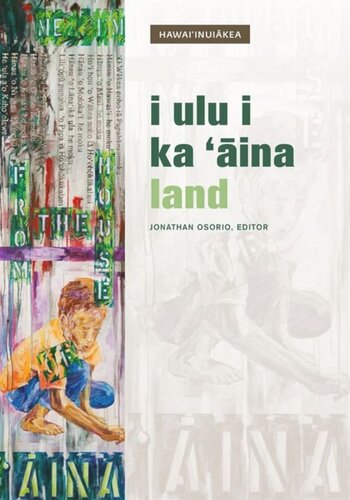

Most ebook files are in PDF format, so you can easily read them using various software such as Foxit Reader or directly on the Google Chrome browser.
Some ebook files are released by publishers in other formats such as .awz, .mobi, .epub, .fb2, etc. You may need to install specific software to read these formats on mobile/PC, such as Calibre.
Please read the tutorial at this link: https://ebookbell.com/faq
We offer FREE conversion to the popular formats you request; however, this may take some time. Therefore, right after payment, please email us, and we will try to provide the service as quickly as possible.
For some exceptional file formats or broken links (if any), please refrain from opening any disputes. Instead, email us first, and we will try to assist within a maximum of 6 hours.
EbookBell Team

5.0
28 reviewsI Ulu I Ka ‘Āina: Land, the second publication in the Hawai‘inuiākea series, tackles the subject of the Kanaka (Hawaiian) connection to the ‘āina (land) through articles, poetry, art, and photography. From the remarkable cover illustration by artist April Drexel to the essays in this volume, there is no mistaking the insistent affirmation that Kanaka are inseparable from the ‘āina. This work calls the reader to acknowledge the Kanaka’s intimate connection to the islands. The alienation of ‘āina from Kanaka so accelerated and intensified over the nineteenth and twentieth centuries that there are few today who consciously recognize the enormous harm that has been done physically, emotionally, and spiritually by that separation.
The evidence of harm is everywhere: crippled and dysfunctional families, rampant drug and alcohol abuse, disproportionately high incidences of arrest and incarceration, and alarming health and mortality statistics, some of which may be traced to diet and lifestyle, which themselves are traceable to the separation from ‘āina. This volume articulates the critical needs that call the Kanaka back to the ‘āina and invites the reader to remember the thousands of years that our ancestors walked, named, and planted the land and were themselves planted in it.
Contributors: Carlos Andrade, Kamana Beamer, April Drexel, Dana Nāone Hall, Neil Hannahs, Lia O’Neill Keawe, Jamaica Osorio, No‘eau Peralto, Kekailoa Perry, and Kaiwipuni Lipe with Lilikalā Kame‘eleihiwa.